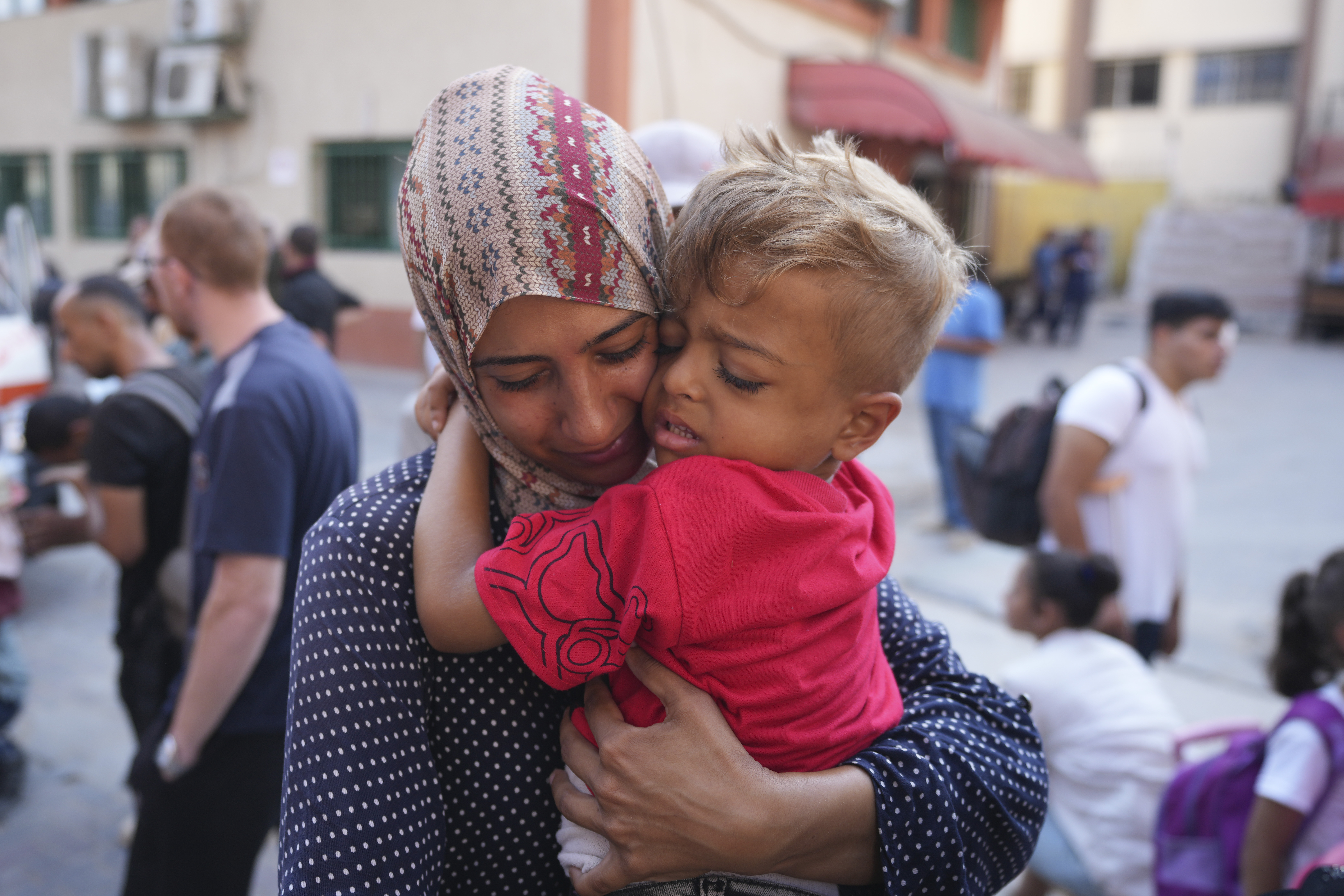
Israeli starvation campaign in Gaza Strip is a form of “genocidal violence” while inaction of world community has led to famine with children dying from malnutrition, according to a group of independent experts and special rapporteurs of the United Nations.
“We declare that Israel’s intentional and targeted starvation campaign against the Palestinian people is a form of genocidal violence and has resulted in famine across all of Gaza. We call upon the international community to prioritize the delivery of humanitarian aid by land by any means necessary, end Israel’s siege, and establish a ceasefire,” said the experts for UN Human Rights Council in Geneva in a statement.
“Thirty-four Palestinians have died from malnutrition since Oct 7, the majority being children. Inaction is complicity,” they said on July 9.
The experts highlighted the deaths of Fayez Ataya, who was barely six-months-old when he died on May 30 and 13-year-old Abdulqader Al-Serhi who died at the Al-Aqsa Hospital in Deir Al-Balah on June 1. These were followed by the death of Ahmad Abu Reida, 9, on June 3 in the tent sheltering his displaced family in Al-Mawasi, Khan Younis.
All three died from malnutrition and lack of access to adequate healthcare. With the death of these children from starvation despite medical treatment in central Gaza, there is “no doubt that famine has spread from northern Gaza into central and southern Gaza,” the experts said.
Further, they noted that the death of a child from malnutrition and dehydration indicated that the health and social structures “have critically weakened”.
ALSO READ: Israel presses Gaza offensive hours after deadly airstrike on tent camp
European Union foreign policy chief Josep Borrell said on his X account that it “is imperative to immediately reach a cease-fire to bring respite to hundreds of stranded civilians, free all the hostages, deliver the needed humanitarian aid”
But Israel’s mission to the UN in Geneva slammed the statement, saying that the UN experts were as much accustomed to spreading “misinformation” as they were to supporting “Hamas propaganda”, the Times of Israel Reported.
It said Israel had continuously scaled up its coordination and assistance in the delivery of humanitarian aid across the Gaza Strip, alleging that Hamas operatives “intentionally steal and hide aid from civilians.”
Israel's Coordination of Government Activities in the Territories, or COGAT, which implements the government's civilian policy within the territories of Judea and Samaria and also regarding the Gaza Strip, posted on its X account on July 8 that they were committed to collaborating closely with international partners to meet urgent humanitarian needs of civilians “despite our war with Hamas”. The Consulate General of Israel in Hong Kong also released lists of Israeli humanitarian efforts in Gaza.
The post was part of an update on fuel for Gaza, which they said they continuously facilitate for the operation of vital humanitarian infrastructure. They said the UN handles the ordering and distribution of fuels inside Gaza and that COGAT had been urging the UN to expand logistics for fuel distribution for a continuous response to the health system.

But the UN, COGAT said, continued to rely on the “collapsing logistical system” of the UN Relief and Works Agency for Palestine Refugees.
UNRWA on June 15 had earlier said that over 50,000 children require treatment for acute malnutrition. The agency has had its staff killed and facilities damaged in Gaza during the Israeli bombings.
The Integrated Food Security Phase Classification acute food insecurity analysis conducted in December 2023 had warned of a risk that famine may occur by the end of May 2024, affecting an estimated 1.11 million people.
Although with some disruptions, in March and April, it noted on its latest report on June 25, the amount of food deliveries and nutrition services provided to the northern governorates increased, temporarily alleviating conditions there. In this context, the report said, available evidence does not indicate that famine is currently occurring.
ALSO READ: More than two dozen Gazans killed in Israeli strike as Hamas says truce talks may be in jeopardy
But it said a high risk of famine persists across the whole Gaza Strip “as long as conflict continues and humanitarian access is restricted”. It said about 96 percent of the population in the Gaza Strip – or 2.15 million people – face high levels of acute food insecurity through September 2024.
“While the whole territory is classified in Emergency (IPC Phase 4), over 495,000 people (22 percent of the population) are still facing catastrophic levels of acute food insecurity (IPC Phase 5),” the report said.
Maysa Saleh, the Norwegian Refugee Council’s Education Officer in Deir al-Balah, Gaza in her update on July 8 that food remains “the number-one worry”.
She noted that only last week, there were no vegetables on the market besides some aubergine, tomatoes and onions. Tinned food was diminishing in both quality and quantity.
European Union foreign policy chief Josep Borrell said on his X account that it “is imperative to immediately reach a cease-fire to bring respite to hundreds of stranded civilians, free all the hostages, deliver the needed humanitarian aid”.
Special Rapporteurs, independent experts and Working Groups are part of what is known as the Special Procedures of the Human Rights Council. Special Procedures experts work on a voluntary basis; they are not UN staff and do not receive a salary for their work. They are independent from any government or organization and serve in their individual capacity.


